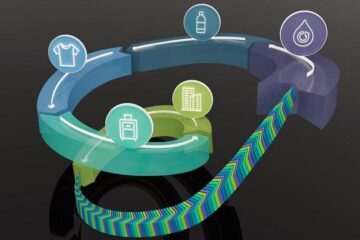Sensors Made in Dresden for Aerospace and Medicine

Currently, the Institute of Aerospace Engineering at the Technische Universität Dresden (TU Dresden) is developing an innovative sensor system for human respiratory investigations which can also be applied in the space. Professor Stefanos Fasoulas and his expert team have created a high-performance miniaturised sensor which enables a simultaneous in-situ measurement of oxygen, carbon dioxide and volume flow rates.
In this regard, scientists of the Professorship for Space Systems and Utilisation and their project partners from industry and from the European Space Agency (ESA) are opening up completely new horizons in the development of sensor systems for human respiratory investigations.
By integrating diverse measurements in a single sensor, the size of the analysing unit can be reduced to a few square millimetres only. Momentarily, scientists are working on the completion of an instrument which is supposed to be used on the International Space Station (ISS) soon. Small, light-weight, portable, powerful and reliable – these characteristics make the new system the ideal device for detecting an astronaut’s fitness or conducting important experiments in the space. The European Space Agency (ESA) is supporting this development.
Of course, the project team is thinking of rather “terrestrial“ applications, too, for instance in medical engineering. In the future, patients could take the walkman-sized instrument home if necessary in order to check their respiratory function regularly or to optimise the inhalation of pharmaceuticals. Nowadays, the application in sports medicine is already being tested successfully. Yet the innovative sensor technology made in Saxony can also be applied in areas such as environmental engineering, vacuum technology as well as in measurement and control technology in various ways. For this purpose, particular production methods are already used at the stage of development, allowing for cost-effective mass production later on.
Media Contact
More Information:
http://www.tu-dresden.deAll latest news from the category: Power and Electrical Engineering
This topic covers issues related to energy generation, conversion, transportation and consumption and how the industry is addressing the challenge of energy efficiency in general.
innovations-report provides in-depth and informative reports and articles on subjects ranging from wind energy, fuel cell technology, solar energy, geothermal energy, petroleum, gas, nuclear engineering, alternative energy and energy efficiency to fusion, hydrogen and superconductor technologies.
Newest articles

Novel genetic plant regeneration approach
…without the application of phytohormones. Researchers develop a novel plant regeneration approach by modulating the expression of genes that control plant cell differentiation. For ages now, plants have been the…

Roadmap to close the carbon cycle
A holistic approach to reach net-zero carbon emissions across the economy. A major approach to achieving net-zero carbon emissions relies on converting various parts of the economy, such as personal…

Cost-effective, high-capacity, and cyclable lithium-ion battery cathodes
Charge-recharge cycling of lithium-superrich iron oxide, a cost-effective and high-capacity cathode for new-generation lithium-ion batteries, can be greatly improved by doping with readily available mineral elements. The energy capacity and…





















